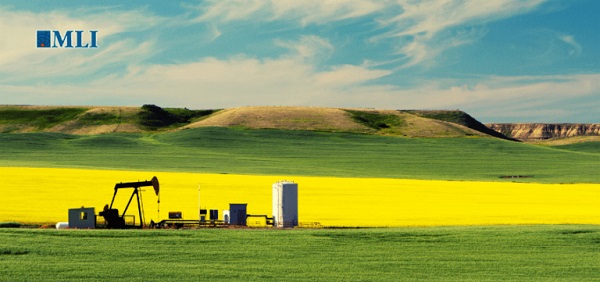Alberta
Happy Halloween! Province gives the go ahead for Trick or Treating

From the Province of Alberta
Halloween
- Alberta’s chief medical officer of health is not cancelling Halloween.
- Outdoor Halloween activities are lower risk and supported by public health.
- A new tip sheet online will help Albertans of all ages enjoy a safe and healthy Halloween.
- Printable posters will let people know if you are handing out treats.
For more information and to find the printable posters go to Alberta.ca/Halloween
If you want to know what the province says about Trick or Treating this year watch this video starting at the 9:40 mark.
From trick-or-treating to the double feature picture show, you can enjoy your favourite Halloween activities safely by taking some simple precautions. Leave the terror to monsters, ghosts and evil clowns – not the pandemic.
Trick or treating
Don’t go trick-or-treating if feeling ill, even if symptoms are minor
Choose costumes that allow a non-medical mask to be worn underneath – make sure you can see and breathe comfortably
Minimize contact with others: trick-or-treat with your family or cohort, remain within your community, and stay 2 metres apart
Avoid touching doorbells or railings: call “trick or treat” from 2 metres away, knock instead of using doorbells, use hand sanitizer after touching surfaces
Wash hands and disinfect packages before eating candy
Handing out candy
Don’t hand out candy if feeling ill or isolating
Wear a non-medical mask that fully covers your nose and mouth
Ask trick-or-treaters to knock or call out instead of ringing the doorbell
Use tongs to hand out pre-packaged candy to avoid handling treats
Find creative ways to maintain distance from trick-or-treaters:
Hand out treats from your driveway or front lawn, if weather permits
Set up a table or desk to help keep yourself distanced
Make candy bags and space them out on a table or blanket; don’t leave out self-serve bowls of bulk candy
Build a candy slide, candy catapult or other fun, non-touch delivery methods
Halloween parties
Stay home if feeling ill, even if symptoms are mild
Spend time with people you know – the smaller the group the better
Choose games and activities that don’t use shared items and allows people to stay 2 metres apart
Don’t share drinks, food, cigarettes, vapes or cannabis
Host your party outdoors, if weather permits. If you must stay indoors:
- reduce your gathering size
- choose a location that allows for physical distancing between people from separate families and cohorts
- provide hand sanitizer
Wash or sanitize your hands often

Resources
- Non-spooky tips for a spooky safe Halloween (PDF, 120 KB)
- Poster – Welcome Trick-or-Treaters (PDF, 92 KB)
- Poster – Sorry, No Candy Here (PDF, 90 KB)
- Guidance for indoor events
- Guidance for outdoor events
- Monitor your symptoms
Alberta
Big win for Alberta and Canada: Statement from Premier Smith

Premier Danielle Smith issued the following statement on the April 2, 2025 U.S. tariff announcement:
“Today was an important win for Canada and Alberta, as it appears the United States has decided to uphold the majority of the free trade agreement (CUSMA) between our two nations. It also appears this will continue to be the case until after the Canadian federal election has concluded and the newly elected Canadian government is able to renegotiate CUSMA with the U.S. administration.
“This is precisely what I have been advocating for from the U.S. administration for months.
“It means that the majority of goods sold into the United States from Canada will have no tariffs applied to them, including zero per cent tariffs on energy, minerals, agricultural products, uranium, seafood, potash and host of other Canadian goods.
“There is still work to be done, of course. Unfortunately, tariffs previously announced by the United States on Canadian automobiles, steel and aluminum have not been removed. The efforts of premiers and the federal government should therefore shift towards removing or significantly reducing these remaining tariffs as we go forward and ensuring affected workers across Canada are generously supported until the situation is resolved.
“I again call on all involved in our national advocacy efforts to focus on diplomacy and persuasion while avoiding unnecessary escalation. Clearly, this strategy has been the most effective to this point.
“As it appears the worst of this tariff dispute is behind us (though there is still work to be done), it is my sincere hope that we, as Canadians, can abandon the disastrous policies that have made Canada vulnerable to and overly dependent on the United States, fast-track national resource corridors, get out of the way of provincial resource development and turn our country into an independent economic juggernaut and energy superpower.”
Alberta
Energy sector will fuel Alberta economy and Canada’s exports for many years to come

From the Fraser Institute
By any measure, Alberta is an energy powerhouse—within Canada, but also on a global scale. In 2023, it produced 85 per cent of Canada’s oil and three-fifths of the country’s natural gas. Most of Canada’s oil reserves are in Alberta, along with a majority of natural gas reserves. Alberta is the beating heart of the Canadian energy economy. And energy, in turn, accounts for one-quarter of Canada’s international exports.
Consider some key facts about the province’s energy landscape, as noted in the Alberta Energy Regulator’s (AER) 2023 annual report. Oil and natural gas production continued to rise (on a volume basis) in 2023, on the heels of steady increases over the preceding half decade. However, the dollar value of Alberta’s oil and gas production fell in 2023, as the surging prices recorded in 2022 following Russia’s invasion of Ukraine retreated. Capital spending in the province’s energy sector reached $30 billion in 2023, making it the leading driver of private-sector investment. And completion of the Trans Mountain pipeline expansion project has opened new offshore export avenues for Canada’s oil industry and should boost Alberta’s energy production and exports going forward.
In a world striving to address climate change, Alberta’s hydrocarbon-heavy energy sector faces challenges. At some point, the world may start to consume less oil and, later, less natural gas (in absolute terms). But such “peak” consumption hasn’t arrived yet, nor does it appear imminent. While the demand for certain refined petroleum products is trending down in some advanced economies, particularly in Europe, we should take a broader global perspective when assessing energy demand and supply trends.
Looking at the worldwide picture, Goldman Sachs’ 2024 global energy forecast predicts that “oil usage will increase through 2034” thanks to strong demand in emerging markets and growing production of petrochemicals that depend on oil as the principal feedstock. Global demand for natural gas (including LNG) will also continue to increase, particularly since natural gas is the least carbon-intensive fossil fuel and more of it is being traded in the form of liquefied natural gas (LNG).
Against this backdrop, there are reasons to be optimistic about the prospects for Alberta’s energy sector, particularly if the federal government dials back some of the economically destructive energy and climate policies adopted by the last government. According to the AER’s “base case” forecast, overall energy output will expand over the next 10 years. Oilsands output is projected to grow modestly; natural gas production will also rise, in part due to greater demand for Alberta’s upstream gas from LNG operators in British Columbia.
The AER’s forecast also points to a positive trajectory for capital spending across the province’s energy sector. The agency sees annual investment rising from almost $30 billion to $40 billion by 2033. Most of this takes place in the oil and gas industry, but “emerging” energy resources and projects aimed at climate mitigation are expected to represent a bigger slice of energy-related capital spending going forward.
Like many other oil and gas producing jurisdictions, Alberta must navigate the bumpy journey to a lower-carbon future. But the world is set to remain dependent on fossil fuels for decades to come. This suggests the energy sector will continue to underpin not only the Alberta economy but also Canada’s export portfolio for the foreseeable future.
-

 Energy2 days ago
Energy2 days agoWhy are Western Canadian oil prices so strong?
-

 2025 Federal Election22 hours ago
2025 Federal Election22 hours agoWEF video shows Mark Carney pushing financial ‘revolution’ based on ‘net zero’ goals
-

 Crime2 days ago
Crime2 days agoFirst Good Battlefield News From Trump’s Global War on Fentanyl
-

 Automotive2 days ago
Automotive2 days agoElectric cars just another poor climate policy
-

 2025 Federal Election1 day ago
2025 Federal Election1 day ago‘Coordinated and Alarming’: Allegations of Chinese Voter Suppression in 2021 Race That Flipped Toronto Riding to Liberals and Paul Chiang
-

 Break The Needle1 day ago
Break The Needle1 day agoWhy psychedelic therapy is stuck in the waiting room
-

 2025 Federal Election1 day ago
2025 Federal Election1 day agoThree cheers for Poilievre’s alcohol tax cut
-

 2025 Federal Election1 day ago
2025 Federal Election1 day agoMORE OF THE SAME: Mark Carney Admits He Will Not Repeal the Liberal’s Bill C-69 – The ‘No Pipelines’ Bill










